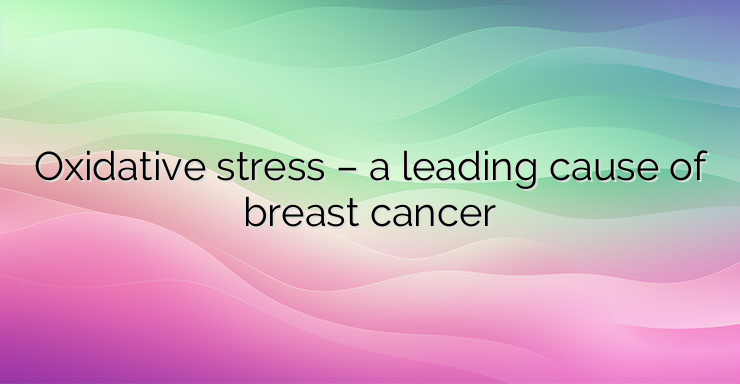Oxidative stress is caused by an imbalance in the production of free radicals and the body’s ability to deal with them. The accumulation of free radicals damages cells at various levels and sometimes causes irreversible changes that can lead to the appearance of cancers. Oxidative stress is also associated with damage to the genetic information of cells. These damages accumulate and can eventually lead to the appearance of altered cells that lead to the development of malignant oncological disease. A new study that analyzes levels of antioxidants and stress markers in the blood may prompt the development of new diagnostic tools for breast cancer. Breast cancer is the most common cancer worldwide. The World Health Organization estimates that in 2020, there were nearly 8 million women with breast cancer who had been diagnosed in the past five years. The identification of new diagnostic techniques is of great importance for efforts aimed at reducing the negative consequences and complications of the disease, as well as improving the quality of life of patients. Researchers from the University of Lahore, Pakistan have investigated the role that markers of inflammation and stress may play in the development and progression of breast cancer. The team examined blood samples from premenopausal women (the period before menopause) who had been diagnosed with breast cancer. When the samples were compared with the controls, it was found that the levels of inflammatory markers were significantly increased in the breast cancer patients. Among the overexpressed markers were the pro-inflammatory protein interleukin-1, matrix metalloproteinase 9, an enzyme that is overexpressed in various diseases, and heat shock protein 27. This protein acts as an antioxidant that normally prevents or reduces cell death by controlling oxidative stress. However, in some diseases, such as cancer, heat shock protein 27 has been found to have both protective and destructive functions. In addition, low levels of protective compounds such as vitamins A, C and D and catalase, an enzyme that protects cells from oxidative stress, were found in the breast cancer group. Levels of the antioxidants superoxide dismutase and glutathione were also significantly reduced. The main mechanisms of breast cancer development are the excessive amount and overbalance of oxidants – oxidizing agents and stress markers. On the other hand, this is directly related to the development of oxidative stress and a lack of antioxidants, explains Samina Malik, first author of the study. This ratio of pro- and anti-inflammatory components in the body may be key to the development of breast cancer metastases and may serve as a diagnostic marker for the disease, the researchers explain. References: https://www.ncbi.nlm.nih.gov/pmc/articles/PMC3219182/


Leave a Reply